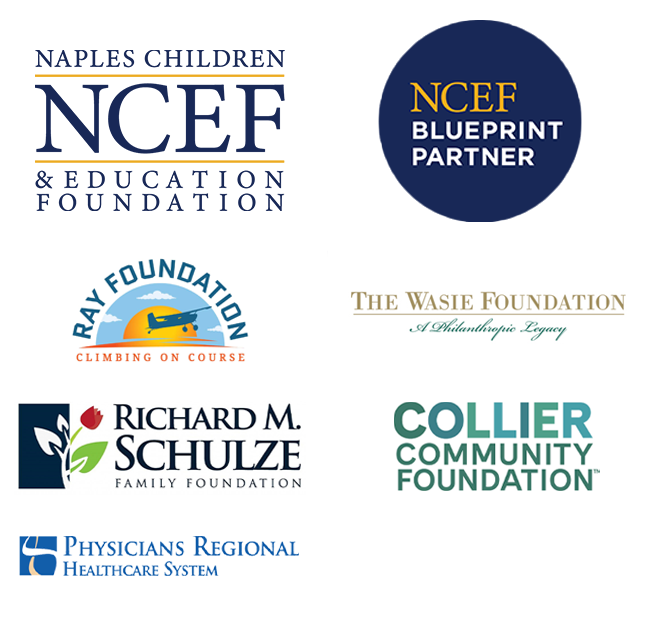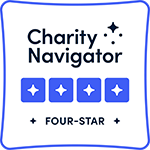Why Give?
Founded in 1991, The Immokalee Foundation is 100% focused on education and professional development for a group of young people running the gamut from kindergarten to post-secondary education. Our students come from situations where English may not be their first language, where just getting through high school is considered a high achievement, and where a college degree and career are mere dreams. With the support of donors and volunteers, The Immokalee Foundation provides students the resources, training, and confidence to follow pathways to success. Examples include one-on-one mentoring, ACT prep, scholarship and college admission support as well as career exploration activities such as guest speakers, career panels, field trips, job readiness seminars, and internships.
Benefits of Joining The Immokalee Foundation Legacy Society:
By making a planned gift to The Immokalee Foundation’s Legacy Society, you are helping build a sustainable future for the students of Immokalee. Your gift will help ensure our students have the tools, resources and support they need for years to come. What is a planned gift? A planned gift is a contribution that a donor promises to make through their estate plan. Joining our Legacy Society is a way to support The Immokalee Foundation beyond your lifetime, and you too, will gain financial and tax benefits for you and your family. Below are various planned giving opportunities.
There are a variety of planned gifts to choose from, and can be inspired by. By making a planned gift to The Immokalee Foundation, you then are recognized as a member of our Legacy Society. You will then receive:
- Recognition on our annual Impact Report
- Invitation to special events
- The direct impact you are making on the students in Immokalee

Ways You Can Give:
- A Bequest is a gift made through a will or a living trust. It’s the most popular planned gift; the easiest to make; and costs nothing during a donor’s lifetime. A Bequest can be included in a new will, or added to an existing will or living trust through a simple amendment called a codicil — often without the expense of hiring a lawyer.
- A Bequest is usually a set dollar amount or percentage of an estate that goes to a nonprofit after the donor’s death.
- A Charitable Remainder Unitrust is a charitable trust that pays a percentage of its principal to the donor and/or other income beneficiaries the donor names for life, for a term of up to 20 years, or for a combination of both. Because it is revalued annually, payments may increase over time. The donor receives a charitable income tax deduction for a portion of the value of the assets placed in the trust. After the Charitable Remainder Unitrust terminates, the balance goes to the nonprofit.
- A Charitable Remainder Annuity Trust allows a donor to contribute appreciated assets to the trust, generate a fixed income stream, defer or eliminate gains, and reduce estate taxes. The Charitable Remainder Annuity Trust pays its beneficiaries a fixed amount based on the percentage of the initial value of the assets used to fund the trust. Payments can be made for the beneficiaries’ lifetimes, or for a term of up to 20 years, or for a combination of both. No upfront capital gains tax is applied to contributions of appreciated property to an annuity trust. After the annuity, trust terminates the balance or “remainder interest” goes to the nonprofit to be used as the donor designated.
- A Charitable Lead Trust is the reverse of a Charitable Remainder Trust. After a donor makes a gift, the Charitable Lead Trust pays income to the donor has designated charity first, for a term of years or for the donor’s lifetime. After that, the trust assets are passed back to the donor or designated beneficiaries.
- Like a gift of life insurance, a donor can name a nonprofit as the beneficiary of a portion or all of his/her IRA, 401(k), or other Retirement Plans. When the donor’s estate is settled, the amount designated passes to the nonprofit and the donor’s heirs avoid income and estate tax.
- A Charitable IRA Rollover (also referred to as a QCD — a qualified charitable distribution) allows donors 70½ or older to make tax-free IRA charitable rollover gifts of up to $100,000 per year directly from their Individual Retirement Accounts to eligible nonprofits. The funds must be transferred directly to the charity; withdrawing them first will result in a tax penalty.
- A Charitable Gift Annuity allows the donor to transfer an irrevocable gift of cash or securities to a nonprofit in exchange for a fixed income payment for life. What’s more, this gift plan entitles the donor to an immediate charitable income tax deduction. At the end of its term, the Charitable Gift Annuity balance goes to the nonprofit to support its mission.
- A donor can designate a charity as a Life Insurance policy beneficiary. When the time comes, the nonprofit receives the proceeds. This allows the donor to provide a large gift to benefit a nonprofit — often more than they would be able to donate outright. The donor’s heirs benefit as well, because policy proceeds distributed to a nonprofit are exempt from estate tax.
- A donor can make a Gift of Real Estate to a nonprofit, removing a large taxable asset from their estate and benefiting by receiving an income tax deduction equal to the appraised fair market value of the property, with no capital gains tax due on the transfer. The nonprofit can then sell the Gift of Real Estate or keep it for its own use.
- Publicly traded Appreciated Securities that a donor has owned for more than one year can be transferred to a nonprofit organization. The nonprofit then sells the securities and keeps the proceeds, which can be applied to whatever purpose the donor designates. The donor gets an income tax charitable deduction based on the fair market value of the securities while also avoiding capital gains tax.
Matching Gifts:
Increase your impact with a matching gift! Many employers sponsor matching gift programs and will match contributions made to The Immokalee Foundation by their employees. To find out if your company has a matching gift program, please visit: ____________.



